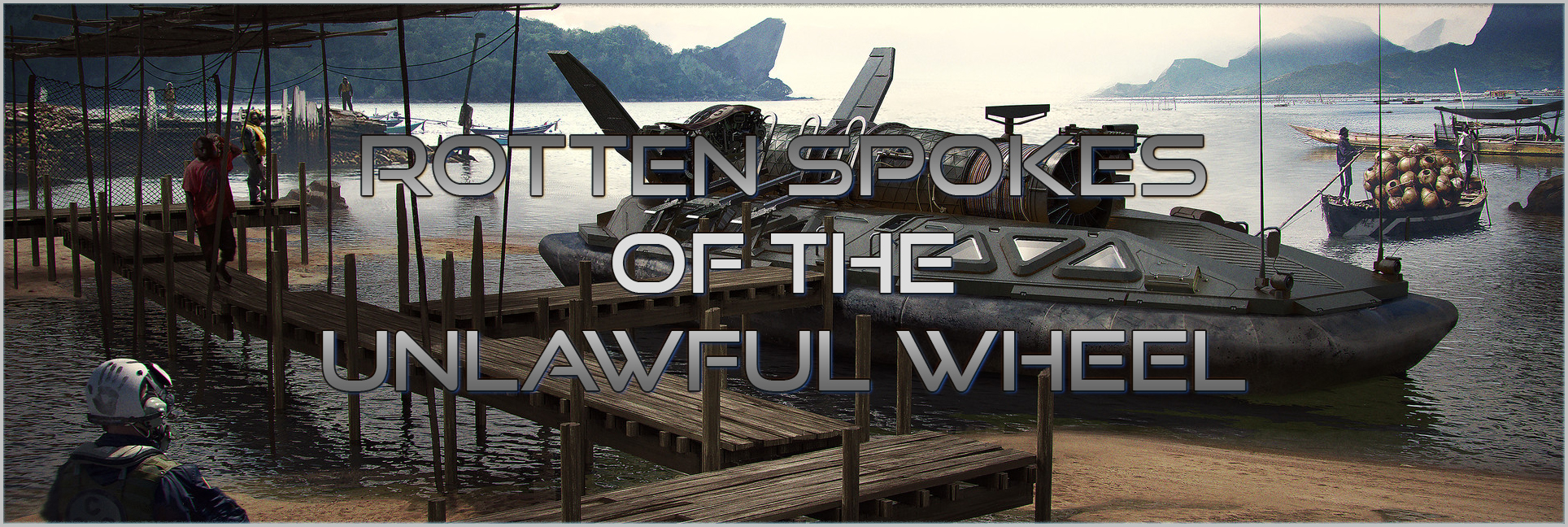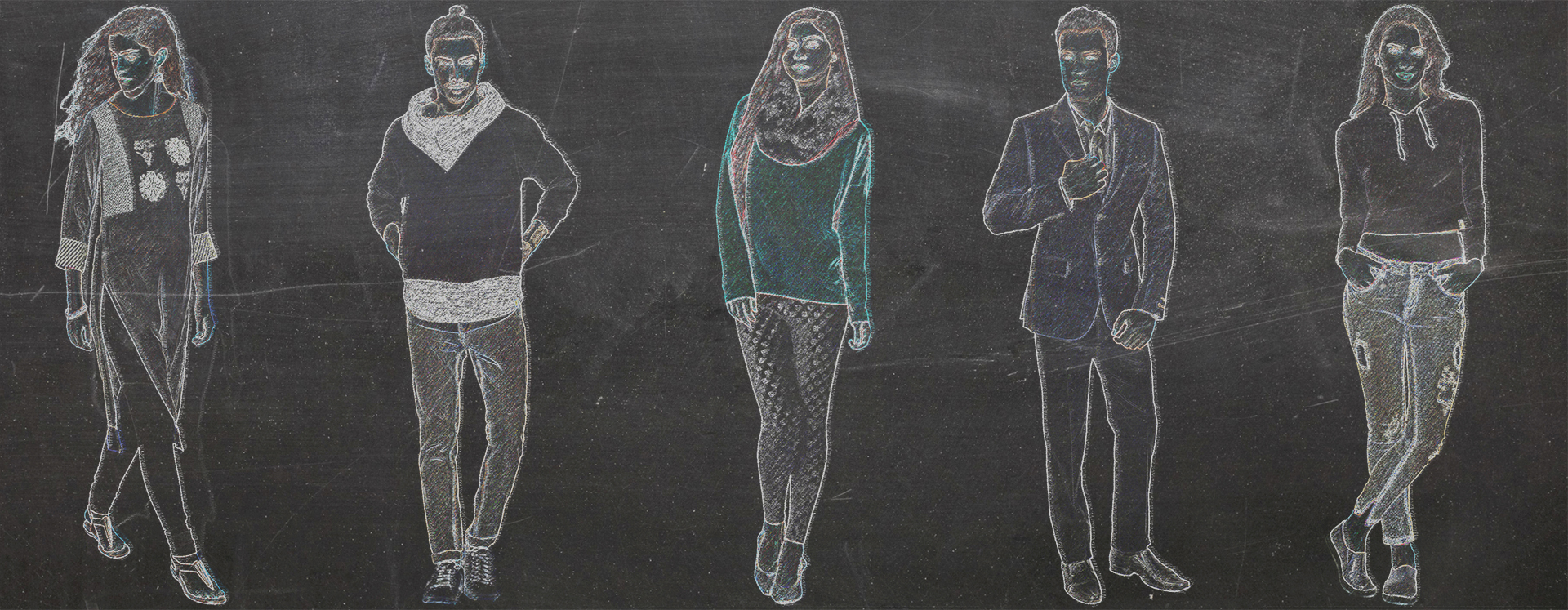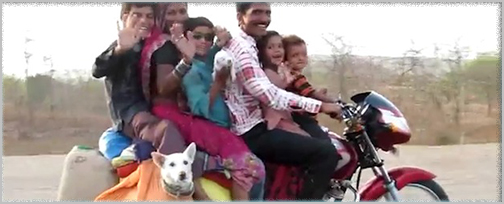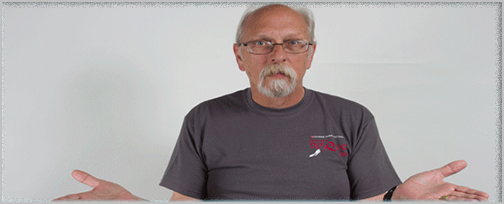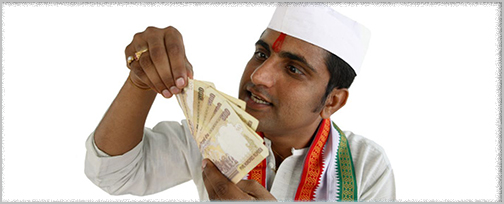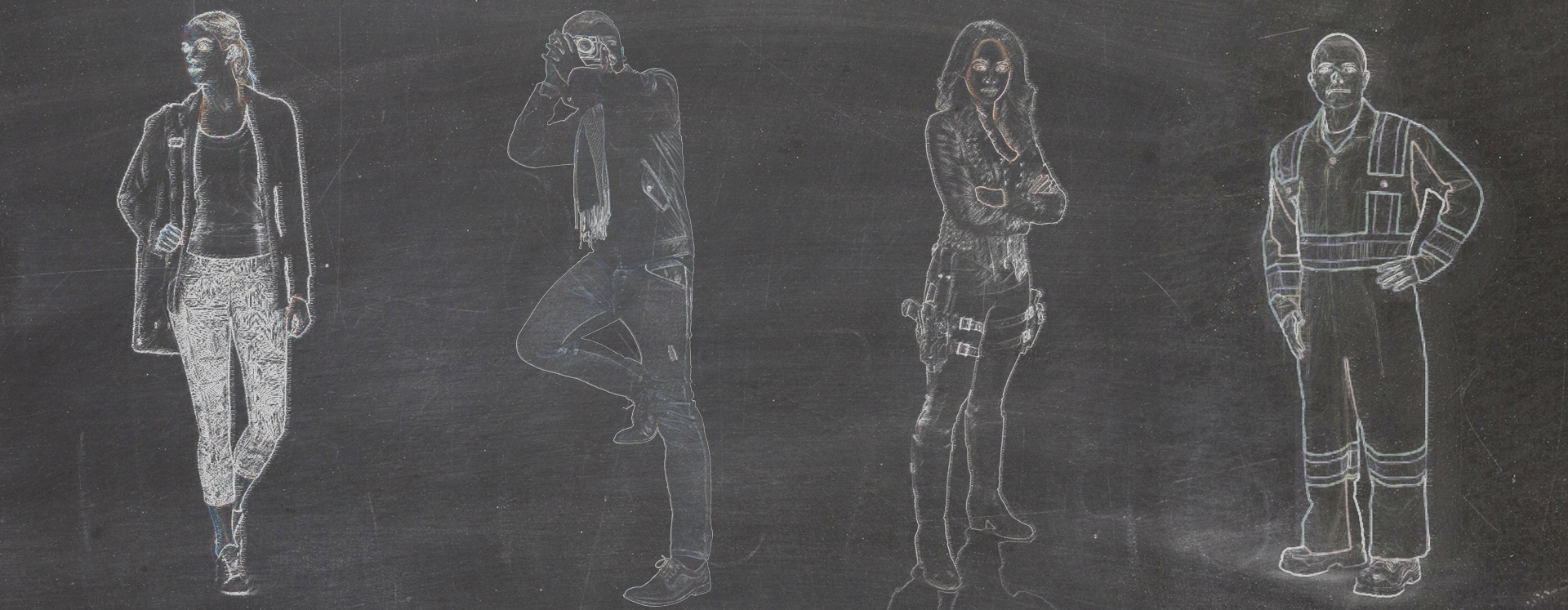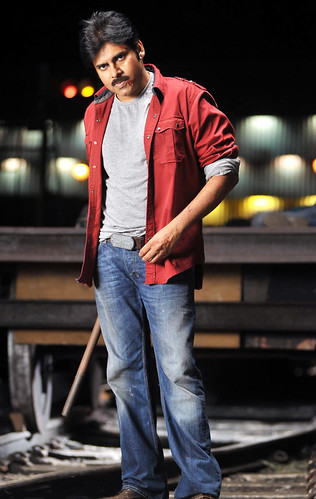Residence: Ghaverdasanna Townhomes, Southside, Sopahn
Affiliation:
- Indian Military Police Veteran Association
motherhen.in - Information Exchange Website
Appearance: Veejay Gupta is a behemoth of a man. His height makes him tower over the average person in Sopahn by at least one head. Not only is he spacious vertically, he is also not lacking in width. His weight is over the norm; some of it are muscle inherited from army exercise regime, but more it are blabber built up by a McNuggets diet. While he is not overly obese, his stomach does protrude when wearing tight fitting shirts. Slight fat flaps can be seen dangling off his arms and legs. However, his right forearm is mostly muscle from handling joysticks, drumsticks, bamboo sticks, meatsticks and other sticks.
His face is not a pretty one. Oval shaped and fluffed with extra meat on the cheeks, Veejay can be described as a bit of an egghead. His black hair runs 3/4 of a finger's length and part way to a thin bald strip amid his scalp. Sideburns extend just below his ears, a mustache sits above his lips and any signs of a beard are terminated with extreme prejudice. His eyes form a downward crescent, his nose is elongated and his big elephant ears make him look like a better listener than he is.
In terms of skin color, Veejay is a lighter shade of brown due to his Awadhi heritage. His forearm is more tanned than his biceps, which gives a bit of a farmer's tan.
His attires are wrinkled and often stained. While Veejay's clothing aren't the worst, or have been through the worst, they degrade quickly due his poor upkeep and frequently neglecting laundry (even if it is just to press a button). Born and raised in urban Delhi, Veejay is fairly resistant to heat, so he will often wear long pants and full sleeved jackets for environmental protection and extra pockets. With that said, Veejay will gladly change into a short sleeved button-up shirt when those cruel summer days roll around; leaving the buttons open and (not so) proudly display an oval birthmark on the lower left of his slight beer belly.
Upon closer examination, one can see Veejay's right index, middle and ring fingers have been sheared off at the phalanges. He will likely be wearing cream-colored prosthetic fingers, but may take them off from time to time.
Background: Veejay's parents are the Indian Dream personified. They started out poor, one of them a hospital janitor and another public transit operator. Things changed when the bus driver had to rush an injured foreign investor to the hospital. From there, they met, was thanked by the investor and got some tips about buying real estate. Four years later, they were celebrating their success as realtors by getting married. Forty weeks after that, Veejay Gupta was born in New Delhi.
Unlike most Indian parents, Veejay's mom and dad didn't have strict expectations raising him. But also unlike most Indian children, Veejay managed to fail whatever little was expected of him. Veejay was not a smart kid, not dumb, just plain mediocre with a lot of bad attitude. Despite being sent to premium English-speaking private schools, he never tried hard and never received more than minimum passing grades. Instead, Veejay focused on the pursue of a bunch of odd hobbies. His parents bought everything he wanted to develop his "video gaming passion", but after a console and a flat screen TV smashed in rage quit, they stopped endorsing him. Then Veejay found music, which he quickly declared himself a connoisseur of 2010s North American pop. Lady Gaga, Kanye West and Justin Bieber would be his saints. He spent hundreds of hours in his teenage years making remixes and mixtapes. Some of these work were sent to record producers, but there was only one response after a dozen or so submissions; "stop".
One thing Veejay did pride his younger self in was being the head of a posse of troublemakers. Many days of his youth were spent rebelling without a cause, and without a goal or outcome. They were simply first world anarchists in a third world country; all of them were from well-off families, and they committed petty crimes out of cheap thrill instead of necessity. But after graduating high school, they ditched him in favor of more mature pursuits. His best friend (or so he thought), was an Odia kid called Hensegati Joshi. "Ati", as Veejay called him, promised to enlist in the military together after their last summer break. When that August came to an end, Ati returned to his family in some place called "Sopahn", citing responsibilities in family business. Dead set on being the badass soldier he discovered in first person shooters, and figuring Ati was just going to be dead weight, Veejay proceeded into the Indian Army.
His branch of service was the military police (MP). Honestly speaking, Veejay had no idea why he chose this particular military specialization. Maybe the MP beret was the coolest to him, maybe there was an underlying fear of frontline service, or he simply went along with the recruiter. Whatever the reason, Veejay found himself in a platoon full of similarly confused high school graduates. They spent months training at a state-of-the-art academy in Bangalore, and when they came out christened with their red berets, Veejay's platoon had apparently set a new battalion record in the training simulator (though only five courses were ran before, and three were interrupted by glitches).
Emboldened by their questionable achievement, the platoon couldn't wait to test out their prowess in real missions. Their first assignment was Assam in 2053. A bunch of insurgents was causing trouble since 2050 (and their predecessors from much earlier), and it was time for Veejay and his fellow MPs to do their share in quelling them. They sang ancient Hindu battle anthems mixed with modern day Bollywood pop songs on their anxious VTOL plane ride. When they touched down, they were soon put to work in assisting a Ghatak special operations group; the soldiers couldn't be more excited.
Turned out the Ghataks didn't even encounter the enemy. Instead, their opponent was the Assamese rice paddies, and their casualty was their autonomous load carrier; a robot pack mule broke down in a puddle. No one, the Ghataks or the MPs, could figure out how to get the drone up and running again. They stood around and stared helplessly at the thing for an hour, then stood in different places and stared from different angles for another helpless hour. Where were the engineers? Apparently their transports' auto-navigation malfunctioned and the engineers drove themselves to the Bangladeshi border.
Veejay wasn't impressed at all. All these fancy training and equipment had led them to huddling around a damn drone. Surely it couldn't be that hard, surely it would be as simple as the movies, surely the drone would start up with a good kick to the head. So that's what Veejay did; he kicked the drone's sensor "head". The first kick earned nothing more than metallic clanking, but the second kick, well, it decapitated the poor robot pack mule.
On that clammy Assamese day, Veejay earned himself the monikers of "Mule-Kicker" and "Bot Slayer".
The Assam mission was terminated within a week. The insurgents were already negotiating a surrender when his platoon arrived; the MPs saw no action at all. In fact, Veejay and his comrades weren't even allowed near the surrendered insurgents, as one of their conditions for laying down arms was to be disarmed by civilian law enforcement, not the military. Some MPs were disappointed, but others began fostering a belief where the insurgents gave up in fear of the "elite platoon". Veejay and the majority bought into the latter, and their officers nurtured it; a false aura of superiority worked like a shot of caffeine for their morale.
A few months later, Veejay was deployed back home in Delhi, in response to a terrorist attack on Connaught Place. Though the gunmen were already shot dead by city police when Veejay arrived, he and his comrades did not miss the aftermath of a bloody carnage. There was no false optimism or humor in this situation; thirty bullet ridden corpses in the capital hit too close to home. A military policeman's job suddenly seemed so grim in the current day.
By 2058, Veejay was a Naik (corporal) and a junior NCO in his platoon. Fellow soldiers came and went. Their mission were mostly routine in domestic regions with the exception of a few international exercises, notably with Russia, Sri Lanka, South Africa and Brazil. The Indian Armed Forces rarely intervened in foreign conflicts, but with its sizable ranks, it was the vanguard of United Nations peacekeeping. In 2058, India would be called up to head United Nations Mission in Mauritania (UNMIM). Thousands of soldiers and police personnel were deployed to Africa; Veejay was one of them.
Mauritania was a terrible place. The country was so dry that people started killing each other for water. On top of water scarcity, the millennium old tradition of human trafficking was still alive and well. Some Mauritanians become religious fanatics, some became anti-religion fanatics, some turned to extreme nationalism, and some declared independence along tribal lines. Without oil to quench the thirst of the economic engine, blood would become the only substitute.
For Veejay and his platoon, Mauritania was both a shitshow and a wake-up call. A mission mandate of "upholding peace and order" was as meaningless as it got. There were up to a dozen factions shooting each other the same time, and within an hour drive of the base Veejay deployed in, half of them had some form of presence. Determining friend and foe was nearly impossible. In a failed state where three governments were recognized by competing foreign powers, everybody was someone else's bogeyman. So he went out to man checkpoints, deliver rations, herd refugees and conduct the occasional midnight sweep. It was in Mauritania that Veejay killed his first man. A car was speeding towards the roadblock, Veejay signaled, fired warning shots and finally pointed his Amogh carbine directly at the driver's seat with seven more weapons coming to life alongside him.
The car skidded off road as a punctured husk. The driver was more than dead. He was asleep behind auto-navigation. At least he died peacefully.
Warfighting was gradually losing its glamour to Veejay at this point. But just when he wanted to get away from the war, the war started to get to him. A few photos and stories on social media was enough to invoke the pity and outrage of the world. Suddenly everyone was painfully aware of the atrocities in Mauritania. The UN responded with a "robust mandate" in UNMIM, which meant that peacekeepers would be actively engaging threats in order to protect refugees. Veejay found himself patrolling villages dozens of kilometers from the safety of a fortified base, getting a few pot shots and improvised bombs sent his way every once in a while. These attacks were rarely deadly, but they strung up his nerves like never before. He found himself up late at night, not out of fear or homesickness, but a sense of nervousness that came out nowhere, but attached itself to everything.
Towards the end of Veejay's six month deployment, he was sent to escort a chemist from a desolate village to the closest airport. Dr. Jerome Omar Amazzal said he was press-ganged into the service of an extremist faction, and now that he escaped, he wanted asylum in India. That was good enough reason for a combined Indian-Brazilian operation into hotly contest battlegrounds. The idea was that the UN blue marked them neutral, and it worked at first. Once they reached Dr. Amazzal, several Indian Police Service (IPS) agents appeared in a helicopter flown by Lion Security PMCs. They took over the situation and whisked Dr. Amazzal away, leaving a portion of Veejay's platoon to clear the surrounding area with the Brazilians. For some reason, their blue helmets lost all of its neutrality when they reached the village boundary. A hail of rocket propelled grenades greeted the peacekeepers.
Veejay never screamed out of fear prior to 2059, but the sight of a Brazilian soldier's torso being pulverized caused him to screech like a harpy. The shock was so great that he didn't even feel three fingers getting chopped off by an explosion fragment.
Seeing the bloody stumps of three phalanges almost made Veejay faint. He was medivaced back to base in a armored vehicle. Searing pain punished Veejay every second of the ride. He desperately wanted pass out, but his brain would rather be hyperventilating. The injury would be far from life-threatening. He was discharged from UNMIM's medical HQ in Nouakchott within a week. Dr. Amazzal visited him personally to thank him for saving his life. However, Veejay turned away every word with cynicism. After all, the chemist must be mocking him when he offered a handshake.
With only a few months left in his service contract, Veejay was shipped back to Bangalore for prosthetics, physiotherapy and light garrison duties. He got discharged a month before his service ended formally, and received a wound medal along with a bit of media spotlight. Feeling suddenly uncomfortable being interviewed by the press and being questioned by eager new recruits like himself eight years ago, Veejay decided to quit the military for good. He was feeling bitter and detached from the reality at home. No longer had he had any optimism, any illusion for a meaningful army career and the goal of becoming a modern warrior sounded like the silliest fantasy. So he went back to living with his parents in New Delhi. He aired to them his grievances over his tour in Mauritania, and then declared he would begin anew by studying music recording in the Pusa Institute of Technology.
According to Veejay, his application went accordingly. But then came the biggest information hack in Pusa's history. Almost every digital application would be deleted by some internet troll. Veejay was pissed, and instead of handling it calmly, he marched up to the registration counter and choked the staff member behind it. He was swiftly arrested, charged for assault and fined a solid amount of rupees. He was too ashamed face his parents after the incident, and he had nowhere else to go. Wandering through the dusk on streets of New Delhi, Veejay heard his cellphone ring.
It was Dr. Amazzal, who had settled down in New Delhi and read about Veejay's case online. He wanted to help Veejay to make up for his lack of sincerity in Mauritania. It came at just the right time, and Veejay couldn't refuse it. He asked for a job and a house, but Amazzal could provide neither. The chemist had failed to get his PhD recognized by Indian universities, and had no choice but to work as a private tutor just to make the ends meet. Amazzal did, however, direct Veejay to an affordable apartment he rented before. Shalimar Condominium was clean enough and cheap enough, so Veejay moved in and took the closest job he could find; the McDonald's across the street.
McDonald's was alright at first. Veejay enjoyed the abundance of comfort food and sweet treats, while staying out of the heat inside air-conditioned lounges. He worked hard in his first two months, even to the point of earning an award for efficient burger production and being promoted to crew trainer. But the never ending grind caught up to Veejay three months in. The customers are entitled idiots, his fellow employees were entitled idiots, and guess what the managers were? Entitled idiots. Frying oil wreaked havoc on his plastic fingers, washing dishes was messy, maintaining the cleaning bots was dirty and nothing enraged Veejay further than dealing with rude customers. Without army discipline, Veejay started to crack under pressure. He would frequently be late to work, cut corners during procedures and even punching a few punchable faces. Against all odds, the managers didn't fire him. Hell, they even bribed the prosecutors with McNuggets to get his cases dropped. Why? Because of some veteran employment benefit; having a "disabled veteran" like Veejay gave the bosses a tax break. Also, (and they wouldn't admit to it) Veejay did scare some bad people away.
Feeling trapped in a crappy life, Veejay looked back to music once again. He reckoned that a college degree was useless anyways. Didn't a whole bunch of celebrities drop out of high school? If so, Veejay was already better than them. So why pay for post-secondary school when the same thing is free on Youtube? Armed with his laptop and the internet, Veejay delved into the world of music production. He wrote his own lyrics, rapped it out, bought his own drum to play (to the ire of his neighbors) and autotuned it all together. This time, the record producers had kinder words to say. They said Veejay had potential, and they could even provide him with a professional production team. But what he lacked was a down-to-life theme. His songs are meaningless, and he wasn't hot enough to make meaningless songs.
One does not simply experience the thug lyfe in McDonald's kitchen, and one also does not simply travel on a McDonald's salary. Now it dawned to Veejay that his youth was spent on becoming someone he never wanted to be. He never wanted to go to a top of the line private school and study with the brightest kids. These assholes and their ivory towers; just hearing their names on the news made his blood boil. He should have been working the hard life, whatever that meant. It was too late now. He couldn't get of this shithole condo and this shithole fast food job. Virtual reality had to suffice. Veejay started watching gangster documentaries, though he didn't even get through half of it before getting sidetracked by the hottest VR game. Just a few matches, just a few more wins, all a sudden, he blew more than 150 hours gaming in one month. Oh well, writing his new hits would have to wait.
Towards the end of May 2060, someone familiar dropped by Shalimar McDonald's. It was a certain Mr. Joshi. That's right, Ati was back after a decade. Gone the awkward little sneak. In walked a straight-standing man in sleek gelled hair, designer smart glasses and the most vogue carbon fiber vest. Behind those smart glasses was someone of abundant confidence and creative energy. Of course, he didn't stop by just for the latest McFlurry; he had an offer for a dear old friend, an offer Veejay couldn't refuse.
In the last decade, Ati had taken over the family pawn shop in Sopahn. The odd little shop wasn't making money for him, but it connected him to many interesting folks and carried their rumors. Ati said he really wanted to close it all down so that he could join Veejay in the military police. Unfortunately, he couldn't do this to his parents, to his grandparents, and all those generations that ran the same shop one after the other. Fortunately though, he found alternative opportunities from the shop goers. With the advent of 3D printers and xG networks, the junk people pawned off wasn't any value. The information they brought in was, and Ati had plenty of those. All Ati had to do was hook these up to the internet, program a snazzy little app, cobble together an online community and cook up a bundle of spicy memes. Mother Hen Street Broker was digitized into
motherhen.in. Rapid development in Sopahn meant people wanted fast facts. Boom, Ati was suddenly making big bucks as an information broker.
So what where does Veejay fit in all this? See, Mr. Joshi had more than his share of imitators, competitors, as it is formally known. Sopahn doesn't have the strongest laws, which is perfect for allowing unrestricted innovation. But it is less than perfect when certain people started to threaten Mr. Joshi's life. So he needed someone he could trust, an old friend that goes way back. Just act tough; the rest will take care of itself. Oh, and Veejay may need to lift a couple of heavy boxes. On the plus side, Ati promised him blazing fast wifi, a cozy townhouse, a sleek sedan and three months of McDonald's salary in one; it even beats the army benefit package. In addition, Veejay may finally get a taste of the street hustle he so long craved.
Just another big city, by the ocean this time; Veejay wanted to try beach side living anyways. What could possibly go wrong?
Outlook and Motivations: One of Veejay's favorite thing to say is "entitled cunt", and quite frankly, he is one himself. Growing up in an upper-middle class family as the only child (his parents had more than enough drama with him), he had a lot of good stuff handed to him on a silver platter. Veejay feels like everyone, and by extension, the world, owed something to him. After all, they took away three of his fingers and a college degree; surely that's enough of a price for karma to swing around. So every time Veejay tries something, he expects twice the reward.
However, that doesn't mean Veejay is an elitist or a snob. In fact, he is the opposite. Some may call him an anti-intellectual. He hates smart
people asses. Part of this attitude stems from a sense of inferiority during his schooling, which was backed by actually inferior results. Another part came from his experience with college application and fast food management, both of which he despised. Finally, Veejay believes veteran grunts like him were underappreciated in India. While this is true to an extant, Veejay likes to exaggerate his service and trauma in what could only be assumed as an attention grab. Because he knows he's not a genius, Veejay doesn't get enjoyment out of feeling smart. So he has to derive superiority out of making other people feel stupid. Whenever someone starts to recite random facts he doesn't know, Veejay is inclined to clock them in the jaw.
People typically expect him to be traumatized by the events in Mauritania. In reality, he isn't. Therapy and psych meds advanced so much recently that they actually work. Veejay does get nightmares about being blown up once in a while, but these are nothing more than minor nags at night. His worst moment was when he got arrested for choking a college registration clerk. The shame of being led away in a police cruiser makes him want to choke someone else.
Veejay's personal escape is behind his VR headset. Does he ever know he plays too much? Nah. He can't let silly things such as sleep and work get in the way of getting good. Well, he hasn't gotten too good, but hey, it's the effort that counts, right? And surely playing these games is a productive contribution to the society.
